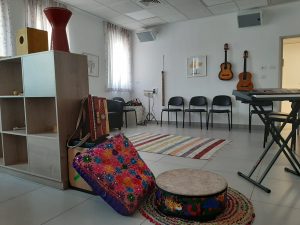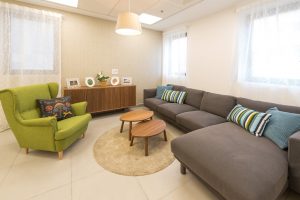A healthy solution for the soul: Beit Ma’azen, an innovative hospitalization alternative in the field of mental health has been established for the first time within the Mayanei Hayeshua Medical Center’s Mental Health Center, for patients struggling with mental health in the Charedi community.
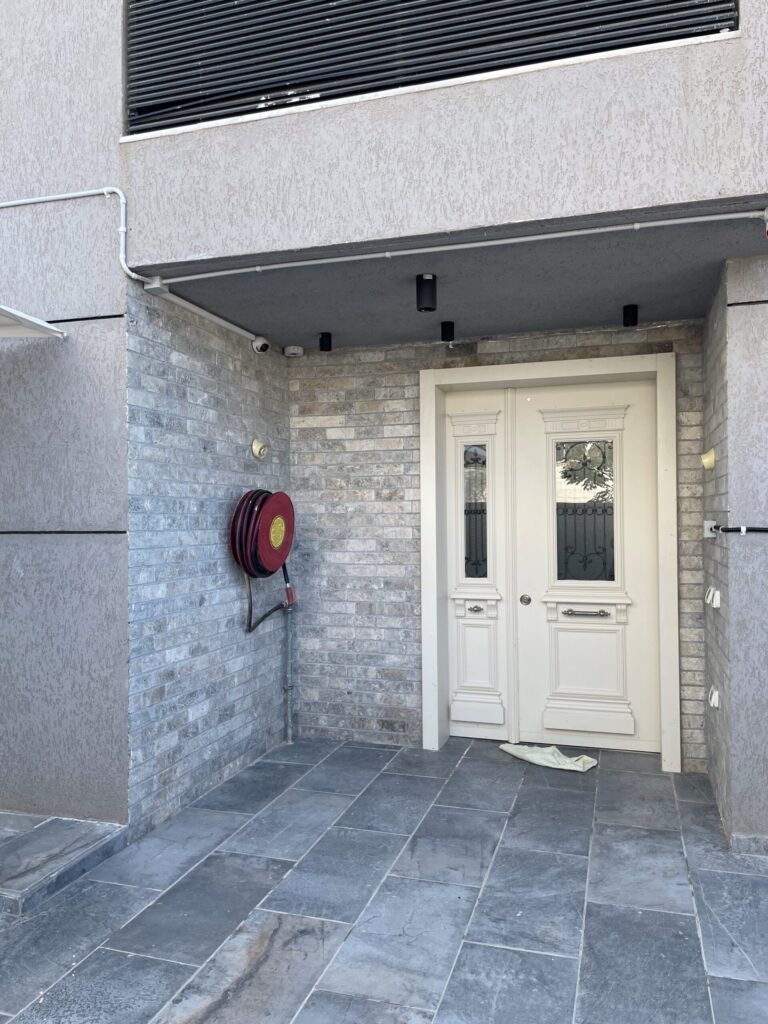
We must not underestimate the importance of this news: Beit Ma’azen is a place that provides a different kind of solution, far more customized to the individual patient and his needs. In addition to the comprehensive professional medical solution, the Beit Ma’azen concept is a place that provides a “home-based” solution because it has an atmosphere homeliness and a feeling of belonging and participating, without hierarchy while preparing its patients for ‘life on the outside’. The results speak for themselves: A drastic reduction of the ‘revolving door’ phenomenon among other mental health inpatients, of whom more than 50% of whom are rehospitalized.
Psychiatric hospitalization is not a recommended experience. Not even, it turns out, for people who need psychiatric hospitalization. Alongside recognition of the necessity for such hospitalization in case of need, a somewhat surprising alternative has emerged in recent decades in the form of a special home for the purposes of mental recovery, or to give it its professional name, Beit Ma’azen. This surprising innovation, which is becoming more common in the field of mental health worldwide as well as in Israel, is almost unknown in our [the Charedi, Ultra-Orthodox] community simply because there is no such facility geared to the Charedi community.
At the Mayanei Hayeshua Medical Center they have risen to the challenge to add another layer in the pioneering enterprise of Rabbi Dr Moshe Rothschild OBM, the founder of Mayanei Hayeshua, who established the Mental Health Center with the aim of providing a professional response to the Charedi population.
The first Beit Maazen of its kind anywhere in the world, which provides a unique customized response to mental challenges in the ultra-Orthodox religious community with the emphasis on a therapeutic and rehabilitative process that works wonders for the chances of success when the patient returns to normal life, has recently been opened as part of the psychiatric system of the Mayanei Hayeshua Medical Center. This is a truly groundbreaking piece of news, which is of considerable importance!
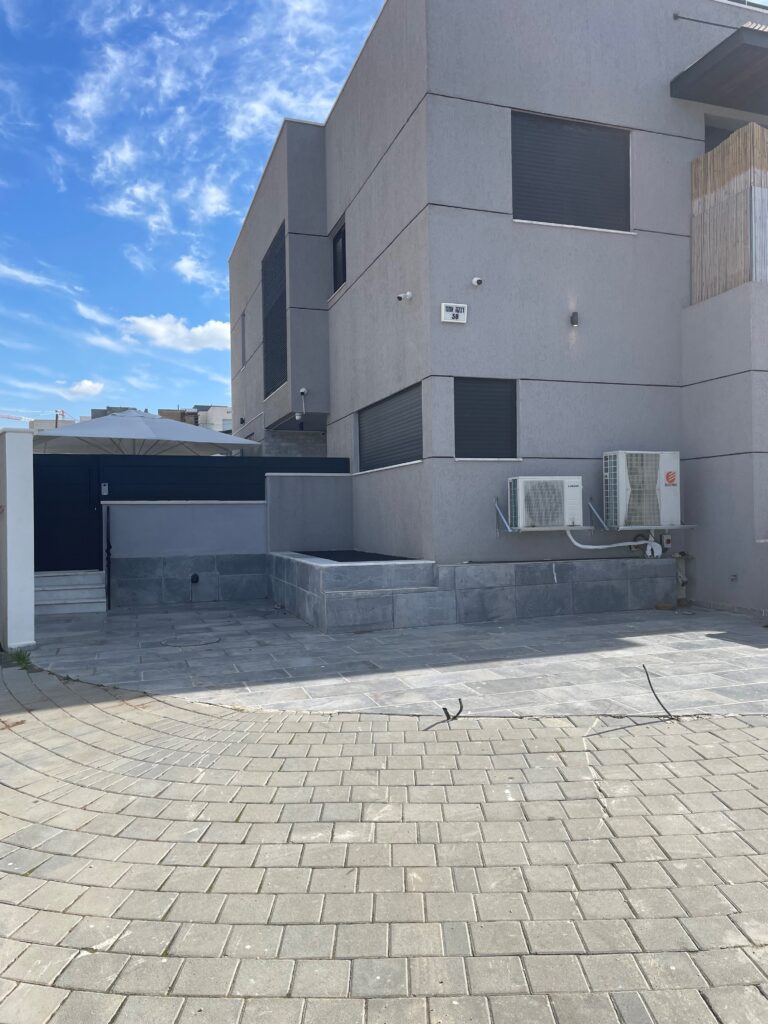
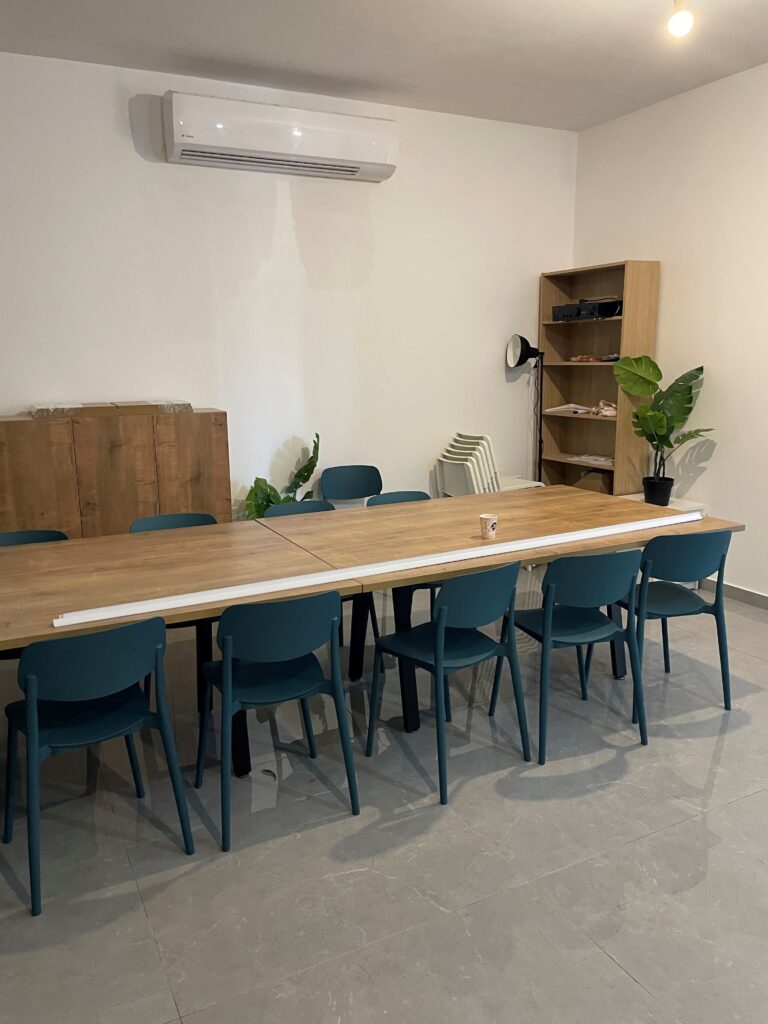
Meir Katz, a social worker, holder of an MA degree, is the director of Beit Ma’azen and has experience from the psychiatric unit of Mayanei Hayeshua Medical Center. He notes that the field of mental health has undergone drastic changes in recent decades with the emphasis on reintegration into the community and rehabilitation. If, in the past, the term “mentally ill” was used to describe all the stigmas and consequences deriving therefrom, today the term used to refer to it is “mentally challenged”. These are people just like ourselves who are dealing with a problem and seeking a solution. The mental health reform has made these services accessible in the field and most importantly, has taken them out of psychiatric hospitals and transferred many of the mental health services to the community. We are talking about a global trend towards reducing psychiatric hospitalizations as much as possible and beyond the accepted alternatives, there are other ways to deal with and respond to these issues.
Beit Ma’azen, Katz explains, is a hospitalization alternative that offers a different kind of solution, which is more adapted to the patient and his needs. Beyond the comprehensive professional therapeutic response that is provided without any compromises, the atmosphere is completely different from that which exists in an institutional setting. “The idea of Beit Ma’azen is to be a place that provides a responsive home to the patients, as its name implies, with a feeling and atmosphere of home and family. Those who reside there are not called patients but ‘residents’ and they participate in activities as well as decisions. There is no semblance of hierarchy in the place and the staff go about their business without wearing uniforms or name tags, to such an extent that people entering the facility cannot tell who is staff and who is a patient. The home instills in the patient facing challenges, a sense of belonging, and strengthens his recognition of his abilities and talents, while preparing him for his life “on the outside”, with the aim of making it possible for him to return to a normative and functioning life.
According to Katz, the concept of Beit Ma’azen has been a success, which has resulted in a significant reduction of the ‘revolving door’ phenomenon (where more than 50% of those hospitalized for mental health end up being rehospitalized). “The idea is gaining more and more momentum in Israel. The first house was opened in Israel in 2016 and since then 17 more houses have been added – but not one of them is intended for the Charedi public. Is it conceivable that a solution so critical and necessary does not exist for the Charedi population?!”
The Mental Health Umbrella : ‘Culturally-Customized’ Solutions
The Beit Ma’azen concept is part of the sequence between hospital daycare and an open ward. It is defined as the most intensive care in the community outside of hospitalization.
Beit Ma’azen, an innovative concept of an alternative to hospitalization for mentally challenged people, is one of the professional tools of Mayanei Hayeshua. “The Psychiatric Department contains a variety of solutions of varying intensity, clinics and inpatient wards for adults and children, for men and women, among which are adult and children clinics, an esketamine clinic (for treatment of resistant depression) and an electroconvulsive clinic, open inpatient wards, adolescent wards, eating disorder wards and a day hospitalization ward. The variety of frameworks facilitate a continuum of effective treatments preventing a worsening of the conditions of mentally challenged patients “, says Prof. Rael Strous, Director of the Mental Health Department of the Mayanei Hayeshua Medical Center.
The importance of the response adapted to the community, which is offered by the Mayanei Hayeshua Medical Center, is illustrated by the following data: 65% of the adults who apply for permanent treatment in the clinics of the Mental Health Center and about 70% of the children, would not seek treatment in other clinics that are not compatible with the ultra-Orthodox lifestyle!
The Beit Ma’azen houses are another building brick in the ongoing process. “The Beit Ma’azen comes into its own between the day hospitalization and an open ward. It is defined as the most intensive treatment in the community that does not have an inpatient setting. Until it was established, mentally challenged people would come to be hospitalized in the ward,” explains Meir Katz, director of the Mayanei Hayeshua’s Beit Ma’azen.
How do you get to Beit Ma’azen? Family members and the patient come following a referral from a doctor in the community. They are invited to a meeting, “Intake” in the professional language, and examine together with the team whether this is the appropriate solution. Katz: “The response is quite predictable in most cases. The family members who hear about Beit Ma’azen for the first time, find out how the place is adapted to the needs of the Torah and mitzvot-observant….. in parentheses. Sadly, I have to point out there are people who naively turn to unqualified and unprofessional therapists, which may be damaging.
The Mayanei Hayeshua Beit Ma’azen, like the entire psychiatric system, is staffed by professionals who know, from the inside, the lifestyle of the Charedi public and are attentive to its needs. Mayanei Hayeshua puts the need to maintain both uncompromising professionalism and sensitivity and adaptation to the needs of the Charedi community at the forefront.
The Model that does not put the Illness in the Center of the Picture
Who are the people coming to Beit Ma’azen?
Amit Talliker, a clinical social worker, holder of an MA degree, working at Beit Ma’azen, a psychotherapist and an occupational therapist experienced in dealings with the Charedi sector, sets things out for us from the start. “How do people come to be hospitalized in a psychiatric hospital? Generally, people who are dealing with mental health issues are not likely to hospitalize themselves. On occasion, the family are the people who identify this behavior and express their worries and concerns for the safety of their loved ones. They turn to someone for help and with no other alternative, hospitalize their relatives. An individual who goes through a psychotic or similar attack experiences such a difficult experience that he agrees to be hospitalized to try and balance and regain his equilibrium so as to prevent the next attack. It is important to understand that a person with this type of disorder does indeed have episodes of illness such as psychosis or paranoid hallucinations. Some, but not all of them, demonstrate poor logic and judgment, but not all of the time. There are many people who have been diagnosed as mentally challenged yet who continue to live full and meaningful lives. They can also include influential people and holders of public office.”
However, with hospitalization, Talliker points out, there are difficult limitations, which may even affect the success of the rehabilitation – and this is apart from the great difficulty of returning to routine. The facts are that more than half of mental health patients are rehospitalized. “First of all, hospitalization does not really provide a full response but a specific one, which deals mainly with the symptoms, and in many cases that is not enough. This means that the patient is admitted and leaves. Second, there is no doubt that hospitalization is not a pleasant experience for mentally challenged patients. Instead of it improving their condition, the very hospitalization is a difficult and stressful experience which increases mental tension and this creates a stigma which also makes the patient’s rehabilitation difficult regarding the way society relates to him and the individual’s belief in himself.”
So is Beit Ma’azen free from these problems?
Talliker: “Absolutely. This is a completely different model. A model that does not put the ‘illness’ and the symptoms in the limelight, but rather, the person in his abilities! The resident is neither ‘sick’ nor a ‘patient’. He is a resident – receiving, of course, a full professional medical solution, identical to that provided in the context of an inpatient at a hospital, but he is also a partner in everything that happens to him. The content of the medication treatment is determined together with the patient and he participates in the decision-making process.”
“The emphasis is to give him a home with a warm family atmosphere. This is a home with a standard of hosting akin to that of a hotel. It is capable of taking between 10-12 residents. The professional staff covers a variety of spheres and provides a very intensive and available professional response but it is almost completely lacking in any kind of hierarchy – where the goal is to do everything possible to make the resident feel equal. It is important to mention the attendants who reside in the house 24 hours a day – these are people who have been specially trained by the professional staff and they operate the facility and take care of the residents forming a kind of mini-community.
During a relatively short stay we create a working interface with the family and the community, building a process which includes links with therapy providers so that the continuity of treatment can continue after the resident leaves, with assistance and follow-up, and so that he has a proper program within the community when he returns home.”
Professional Medicare at Hotel Level
Meir Gotkovitz, a male nurse with a graduate degree who works at Beit Ma’azen, is a senior member of the Mayanei Hayeshua Mental Health system, and is excited by the news. “Sadly, mental health patients are viewed as strange by the general public, in a kind of negative discriminatory manner. While people who are sick receive compassion and acceptance, it’s hard for me to watch people who are dealing with mental health issues not receiving the same warmth and love…….. they are ostracized. Hospitalization, by nature, is only likely to make this unfair stigma even worse. Beit Ma’azen is the next step in the world of mental health!”
As a Charedi carer, I have had major fears until now, about the lack of solutions available to members of the Charedi community. You cannot underestimate the importance of the announcement about Beit Ma’azen – especially for the Charedi community! This is an amazing home, which is inside the community. The residents go out to synagogue for prayers and enjoy a sense of belonging which means that they are an integral part of the community, which welcomes them rather than ostracizing them.”
Treatment is also at eye level, as Gotkovitz is eager to stress: “The professional staff provides a full medical solution just as it does in the hospital, if not even more intensive. The number of staff members is relatively speaking, broader than the patient population. There are carers present in the house 24 hours a day and at one and the same time, the approach is personal and accommodating. We try not to create any hierarchy so that all the residents of the house are equal, and we also say that the people of Beit Ma’azen are not ‘patients’, but ‘residents’. It’s not just about semantics (though that is important) but it’s a message that the residents are the core of the house, they are part of it and participate in everything connected to it!”
We do not dictate their daily routine. There is a residents’ meeting, where we think and plan together with them. They participate in preparing the meals and the staff and residents dine together. As part of my job, I show and explain their disturbances to them as well as the medical therapy emphasizing the importance of continuing with it and not stopping even when they feel good. This reinforcement helps them later on. The idea is to establish a continuum which will not happen if there are, heaven forbid, signs of deterioration when there is nobody around to identify them and understand what needs to be done. They feel at home, but the objective is to prepare them for the future, and for their own homes!”



